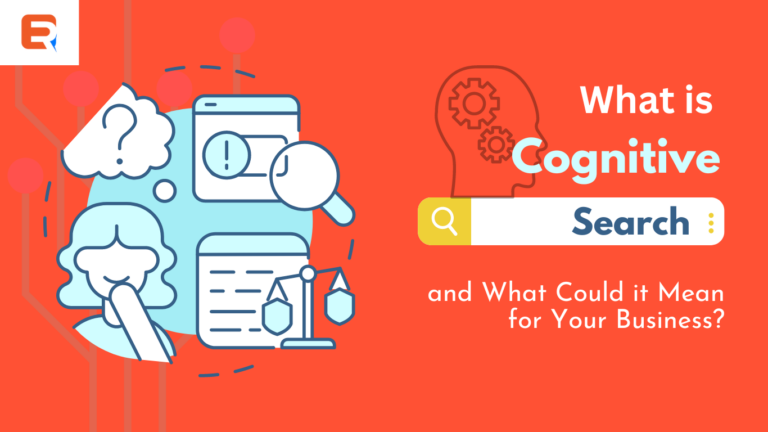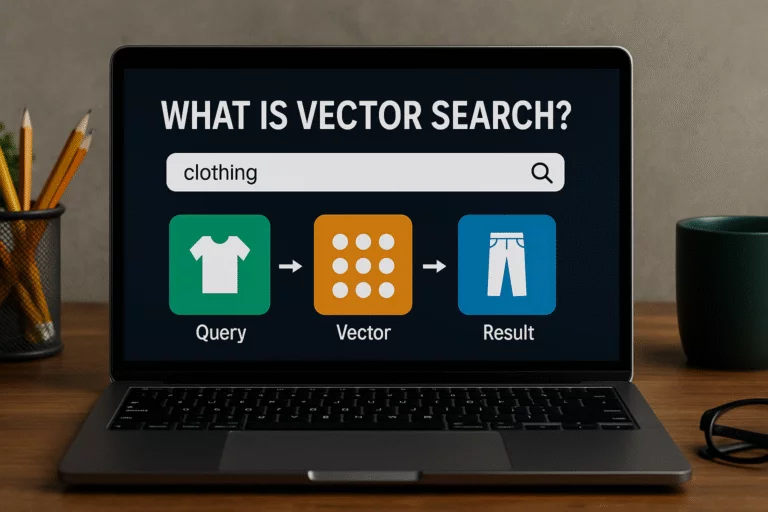You must be wondering what a strange thing it might be! Don’t worry it’s not that complex. Cognitive search is a measure that drives a better, and more seamless search experience throughout an enterprise. When you consider a bigger enterprise, it can be a hassle if your search feature is not as extensive as it can be.
With compliance with cloud storage, an efficient search tactic will grant the users to retrieve data from various sources instead of going through the hassle of searching one database at a time.
That is why it has a say in the realm of search tactics. Although there have been a variety of search techniques for big corporate networks virtually since the inception of inside office networks, these techniques are still changing. Many businesses are already using cognitive search to improve existing search applications, such as enterprise search. Whatever customers type, your website should always be ready to show them something.
So, let’s get into the fundamentals of it, and analyze what impact it may have on your business.
Cognitive Search in Easy Terms
The main concept is to extend a search answer to include cognition, which is the process of learning through thinking. Contrast this with classical search, which looks for terms in a dataset that match a search query. Instead, it looks for the best match between what an individual is actually looking for, and what is in the data file.
Consider this illustration: If anyone goes online to look for guitars, and search for the term ‘rock’, most probably they will get search results related to actual rocks, or maybe Dywane Johnson. The traditional search is built this way.
With this, AI and ML will work together to find relevant results and show rock guitars instead of results that are not related to a rock guitar.
Some of the Biggest Differences Between Cognitive and Traditional Search
Better, and more pertinent search results make a significant impact on your business. The cognitive type of search, as opposed to keyword search, explores both organized and unstructured material, spots patterns and significance, and produces superior outcomes for searches from all the sources.
To put out a report, employees would need to gather data and information about a product, such as stock counts, or sales figures. The traditional search would probably produce intermittent results, necessitating further attempts to retrieve only the information required. With this new way, all the necessary information would be quickly gathered from a variety of sources, allowing them to continue, and show the report more quickly.
Why Your Business Should Use It?
Here are some of the strongest reasons why the cognitive way of search is a must for your enterprise.
-
Better Engagement and Experience for Employees
We all know the importance of employee engagement, and how it plays a crucial role in a company’s success. Employee recognition apps are a valuable tool that can help boost engagement. With the cognitive way of searching, you will surely take a big step towards positive employee engagement.
Through the reduction of lost time and an improvement in production, employee loyalty is encouraged. Users may locate relevant material more quickly with the aid of ML algorithms that offer unique suggestions, and the adaptability of the cognitive kind of search enhances the user experience through personalization. Employees are more inclined to utilize the tools frequently since their search experience is enhanced.
-
Better Customer Retention and Less Bounce Rates
Company clients and customers want to search on websites, and in mobile applications to function both, as Google does, which may be irritating for firms. They don’t want to input subsequent inquiries slowly; they want solutions to their questions instantly. Additionally, because 86% of online users claim they are unlikely to go back to a company where they had a bad experience, it is crucial for businesses to provide seamless user experiences.
With the cognitive way of searching, corporate users’ expectations are getting closer to being met. It “thoughtfully” predicts their wants, links them to the information they’re seeking and further customizes search results.
-
Say NO to Excess Operational Costs
Businesses know the importance of lessening their operational costs steadily, and efficiently. Growth can be slow but it must be steady. There are many elements behind a company’s success, and operational costs are one of the big elements of it.
The operating expenses of an organization are reduced when production is maximized since data collection and knowledge discovery need less time and resources. Companies which deal with enormous volumes of data, including medical and legal aid, stand to gain the most from this.
-
Data Unlocking Can’t Get as Easier as This
In case you are not aware of this, digging data on the last quarter is in no way a cakewalk, and it definitely isn’t a short-time task.
Indexing, statistical analysis of text, and AI technologies can be used in the cognitive type of search technology to get meaning out of data. Imagine that your marketing department wishes to determine customer search trends from the previous quarter.
The task of gathering the data using conventional search techniques would be rather large. A service search in a cognitive way, on the other hand, would expedite the procedure by sorting through the many information sources used by your company, obtaining pertinent information from unstructured formats, and selecting the things with the greatest importance for presentation.
Enhance and Not Replace the Method of Enterprise Searching
One notion or thought in the business world is that the present enterprise search system has to be entirely dismantled, disassembled, and abandoned in order to create room for the brand-new ML cognitive type of search system.
But this is not true. Within a closed network, the cognitive search facility may be integrated with the present search strategy to strengthen the robust search system currently in place. To ensure that the response time is maintained, it is crucial to use cognitive search, ML, and AI to locate the correct data, analyze it, and place it in an appropriate setting. After that, the conventional search solution should thoroughly index the data for quick retrieval and search results.
Wrapping Up
With constant competition and evolving technologies, your business should also take steps along with innovations. And among those steps, welcoming a cognitive way of search is one of the biggest, and most essential steps that you need to take today.




